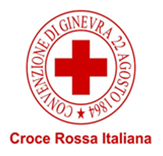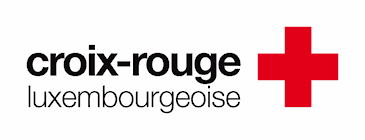GENEVA, 8 October 2020—Drawing on 40 years of experience from the AIDS response, UNAIDS is issuing new guidance on how to reduce stigma and discrimination in the context of COVID-19. The guidance is based on the latest evidence on what works to reduce HIV-related stigma and discrimination and applies it to COVID-19.
Since the start of the COVID-19 pandemic, numerous forms of stigma and discrimination have been reported, including xenophobia directed at people thought to be responsible for bringing COVID-19 into countries, attacks on health-care workers and verbal and physical abuse towards people who have recovered from COVID-19. Attacks on populations facing pre-existing stigma and discrimination, including people living with HIV, people from gender and sexual minorities, sex workers and migrants, have also been reported.
“In the wake of the fear and uncertainty that emerge during a pandemic, stigma and discrimination quickly follows,” said Winnie Byanyima, Executive Director of UNAIDS. “Stigma and discrimination is counterproductive. It exposes people to violence, harassment and isolation, stops people from accessing health services and prevents public health measures from effectively controlling pandemics.”
Addressing stigma and discrimination in the COVID-19 response provides countries with rights-based guidance through education, support, referrals and other interventions. It offers solutions across six specific areas: community, workplace, education, health care, justice and emergency/humanitarian settings.
As with the HIV epidemic, stigma and discrimination can significantly undermine responses to COVID-19. People who have internalized stigma or anticipate stigmatizing attitudes are more likely to avoid health-care services and are less likely to get tested or admit to symptoms, ultimately sending the pandemic underground.
“We know what works and what doesn’t, we know how to change beliefs and behaviour. For the last 30 years we have been successfully leading the HIV response, building valuable experience, knowledge and wisdom along the way,” said Alexandra Volgina, Programme Coordinator, Global Network of People Living with HIV. “We want to share these to change people’s lives for the better, and to make our distinctive contribution to overcoming the COVID-19 pandemic.”
Some countries have used existing criminal laws or new, COVID-19-specific laws, to criminalize alleged exposure or transmission of COVID-19, putting more people in overcrowded prisons, detention centres and other closed settings where COVID-19 is easily transmitted.
“There is no greater manifestation of stigma than when it is enshrined in law. The use of the criminal law or other unjustified and disproportionate repressive measures in relation to COVID-19 is having a devastating impact on the most vulnerable in society, including many people living with HIV, exacerbating inequalities and perpetuating stigma,” said Edwin J. Bernard, Executive Director of the HIV Justice Network. “Measures that are respectful of human rights and empowering of communities will be infinitely more effective than punishment and imprisonment. We hope that these evidence-based recommendations on reducing COVID-related stigma and discrimination will make a difference to those who need it most.”
Reports in the early days of COVID-19 include discrimination related to gender and gender-based violence, targeting of key populations, including sex workers, and arrests and beatings of lesbian, gay, bisexual, transgender and intersex people. In April 2020, following a number of reports of violence and stigma and discrimination arising from the implementation of COVID-19 measures, UNAIDS began to identify the actions needed to respond, and in August UNAIDS issued a report, Rights in a pandemic, that highlights many of the human rights abuses that took place early in the response to COVID-19.
The new guidance, Addressing stigma and discrimination in the COVID-19 response: applying the evidence of what works from HIV-related stigma and discrimination in six settings to the COVID-19 response, is part of efforts by UNAIDS and the Global Partnership to Eliminate All Forms of HIV-Related Stigma and Discrimination to accelerate progress on the goal of zero discrimination, in line with the political commitments that United Nations Member States made in the 2016 Political Declaration on Ending AIDS and in Sustainable Development Goal 3, ending AIDS as a public health threat by 2030.








